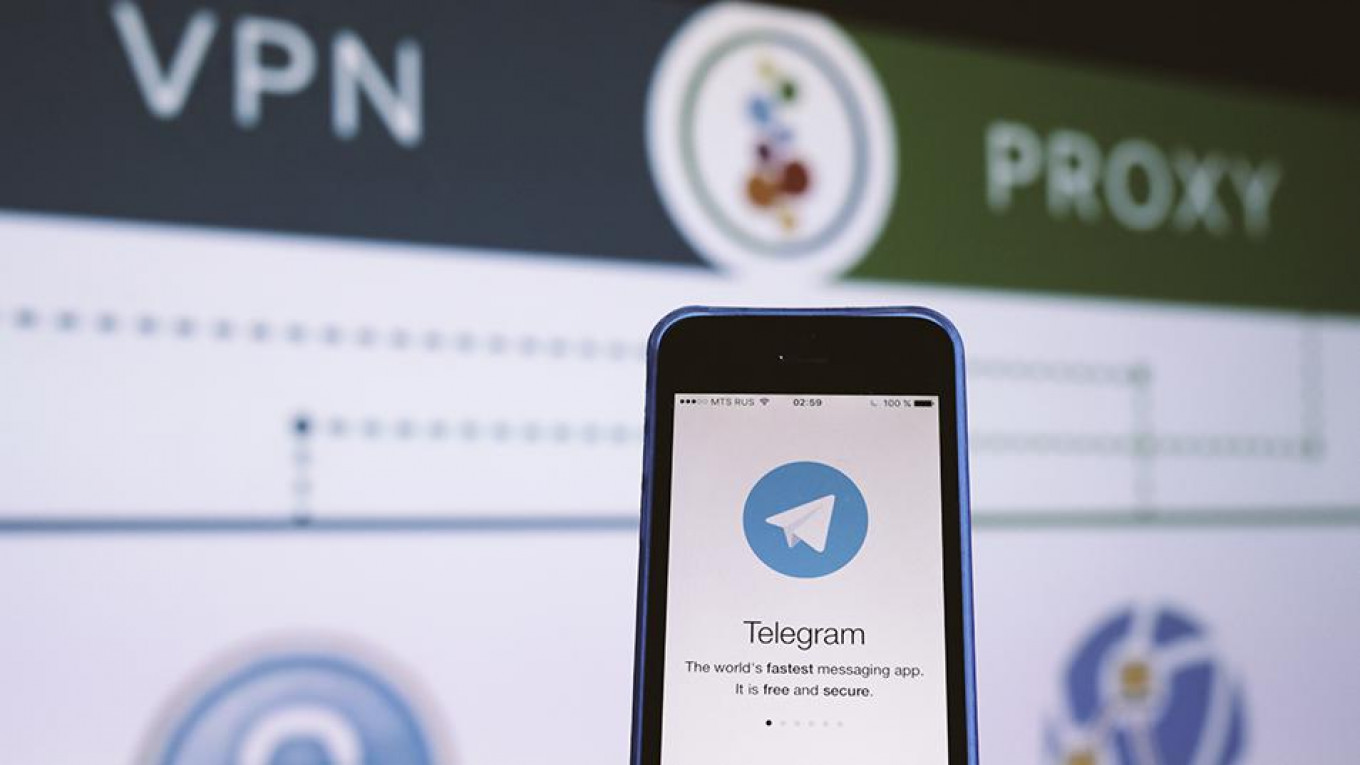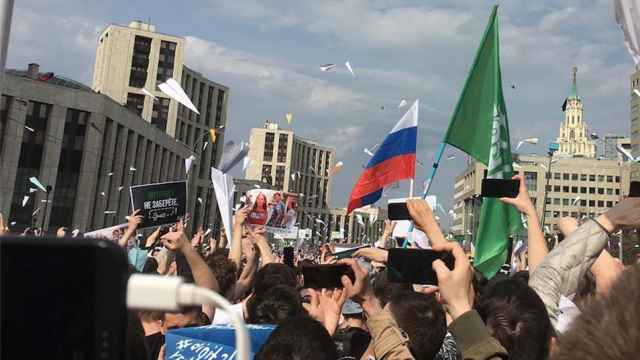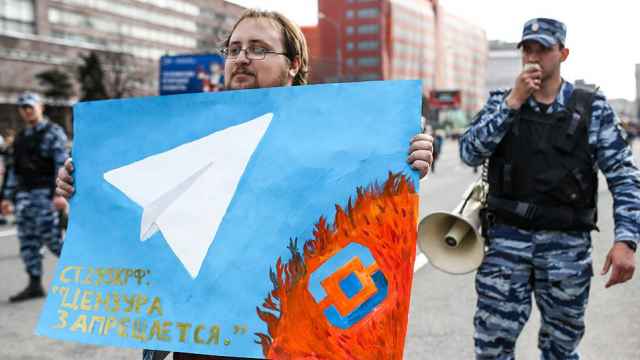Roskomnadzor has blocked 50 digital tools that enabled users to access the Telegram messaging app despite an official ban, the regulator’s deputy director said Thursday.
The virtual private networks (VPNs) and Internet-address anonymizers weren’t identified, but quoted Vadim Subbotin told journalists that such services have nearly tripled in number since Roskomnadzor began blocking Telegram, RIA Novosti reported.
The agency is currently in talks with 15 foreign hosting companies that run the risk of being blocked themselves if they continue to provide IP addresses that route users to Telegram, Subbotin said.
Meanwhile, the agency has unblocked three large subnetworks, he said.
"We are in dialogue with the hosting providers to which these subnets belong. We monitor them constantly; as soon as we see that we can unblock them, we will unblock them,” Subbotin said. “This is a priority for us.”
He said Roskomnadzor currently has no plans to add Viber, another popular messaging app, to its registry of “information-dissemination organizers” — the classification behind the demand that Telegram share its encryption keys with the Federal Security Service (FSB).
Earlier Thursday, Communications Minister Nikolai Nikiforov warned that if Viber had “problems” turning over its encryption keys, the FSB could seek a court order similar to the one that prompted the Telegram ban, state-run news agency TASS reported.
Telegram and millions of related IP addresses were blocked following an April 13 Moscow court order against the app for refusing to give the FSB access to users’ private messages. Telegram founder and CEO Pavel Durov has maintained that providing encryption keys or gaining access to information beyond the device is impossible.
A Message from The Moscow Times:
Dear readers,
We are facing unprecedented challenges. Russia's Prosecutor General's Office has designated The Moscow Times as an "undesirable" organization, criminalizing our work and putting our staff at risk of prosecution. This follows our earlier unjust labeling as a "foreign agent."
These actions are direct attempts to silence independent journalism in Russia. The authorities claim our work "discredits the decisions of the Russian leadership." We see things differently: we strive to provide accurate, unbiased reporting on Russia.
We, the journalists of The Moscow Times, refuse to be silenced. But to continue our work, we need your help.
Your support, no matter how small, makes a world of difference. If you can, please support us monthly starting from just $2. It's quick to set up, and every contribution makes a significant impact.
By supporting The Moscow Times, you're defending open, independent journalism in the face of repression. Thank you for standing with us.
Remind me later.






